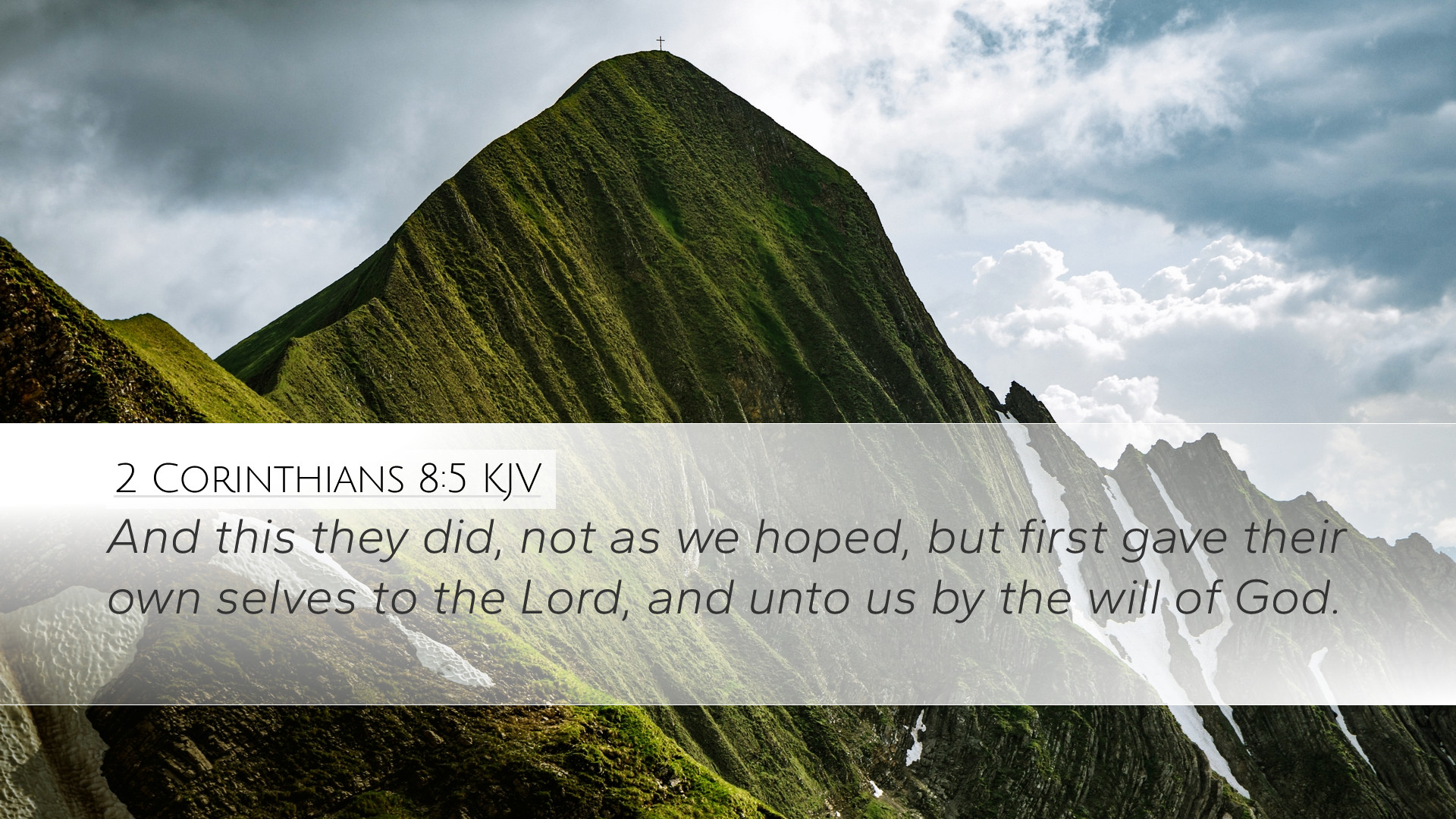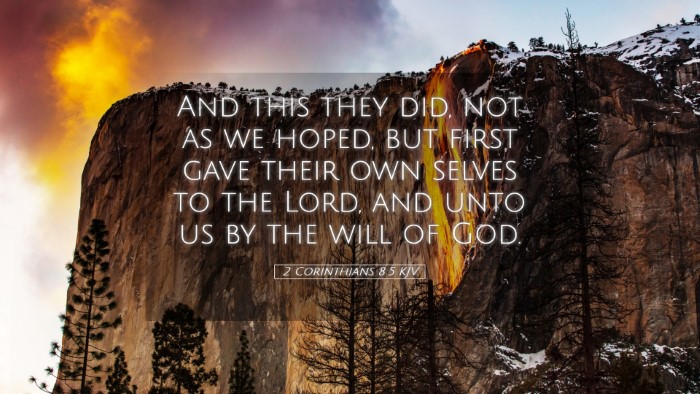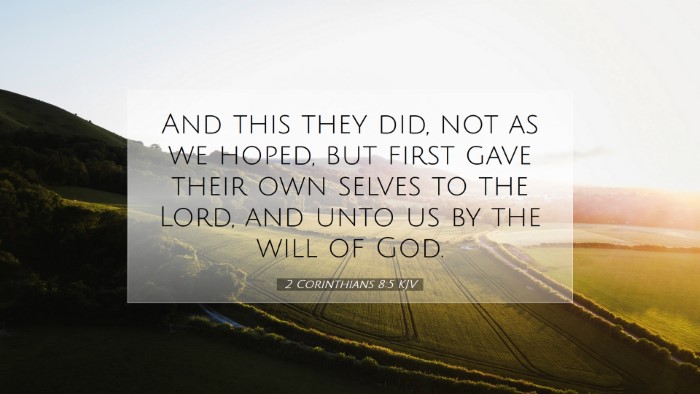Old Testament
Genesis Exodus Leviticus Numbers Deuteronomy Joshua Judges Ruth 1 Samuel 2 Samuel 1 Kings 2 Kings 1 Chronicles 2 Chronicles Ezra Nehemiah Esther Job Psalms Proverbs Ecclesiastes Song of Solomon Isaiah Jeremiah Lamentations Ezekiel Daniel Hosea Joel Amos Obadiah Jonah Micah Nahum Habakkuk Zephaniah Haggai Zechariah MalachiVerse
2 Corinthians 8:1 2 Corinthians 8:2 2 Corinthians 8:3 2 Corinthians 8:4 2 Corinthians 8:5 2 Corinthians 8:6 2 Corinthians 8:7 2 Corinthians 8:8 2 Corinthians 8:9 2 Corinthians 8:10 2 Corinthians 8:11 2 Corinthians 8:12 2 Corinthians 8:13 2 Corinthians 8:14 2 Corinthians 8:15 2 Corinthians 8:16 2 Corinthians 8:17 2 Corinthians 8:18 2 Corinthians 8:19 2 Corinthians 8:20 2 Corinthians 8:21 2 Corinthians 8:22 2 Corinthians 8:23 2 Corinthians 8:24

